Dear Readers, The raspberry is very healthy due to its numerous valuable ingredients. But how does the small, red fruit work? And against which complaints do the raspberry help?
The raspberry (also called mulberry, cowberry, cranberry, and amba) is a species of plant in the rose family. The raspberry bush can reach up to 2 meters in height. Its branches are covered with fine thorns. It flowers between May and August.
Depending on the variety, the raspberries can be harvested from June to autumn, and not only do they taste delicious, but they also have a beneficial effect on your health.
Short overview: how healthy are raspberries?
- Raspberry Scientific name: Rubus idaeus, belonging to the rose family.
- Healing effect: supports the immune system, can promote digestion
- Area of application: diseases of the stomach and intestines as well as diarrhea and flatulence, weakened immune system, cardiovascular diseases
- Ingestion: Consumption of the fruit as a tea (parts of the plant and dried berries)
- Ingredients: tannins, flavonoids, vitamin C, minerals, vegetable sugars (including pectin)
The raspberry is a medicinal plant
In the wild, the raspberry occurs from temperate Europe to western Siberia; in a warm climate, for example in the Mediterranean region, it is rare and only found in mountainous regions. The raspberry bush is grown commercially, but the fruit cannot be treated with pesticides due to its sensitivity and must be harvested by hand.
The raspberry has been known as a medicinal plant since ancient times. It has a high content of the following vital substances:
- vitamin C
- and Vitamin A
- vitamin B
- biotin
- tannins
- Minerals such as potassium, phosphorus, calcium, and magnesium
- fruit acids
Fresh raspberries are healthy food and taste delicious too. 100 grams of raspberries have 33 calories, making them a low-calorie snack with high vitamin content. In combination with a balanced diet, they are a support in the treatment of obesity.
The small berries can also help with other health problems and diseases. But do raspberries, like other fruits and vegetables, also affect digestion?
How does the raspberry work?
In the human organism, the raspberry has anti-inflammatory, blood-purifying, calming, astringent, antipyretic, diuretic, and diaphoretic effects. The berry is often used for the following health complaints and diseases:
- weakened immune system
- Diarrhea
- scurvy
- rheumatism
- sore throats
- mouth ulcers
- Digestive system disorders (e.g. diarrhea and flatulence)
- gingivitis
- dementia
- Cardiovascular diseases (e.g. arteriosclerosis, high blood pressure, stroke)
The raspberry can also have a particularly positive influence on women-specific ailments and is therefore used to regulate the female cycle and facilitate childbirth.
Researchers at Harvard University in Boston/USA found out in 2011 that the polyphenols in berries can significantly reduce the risk of Parkinson’s. Using questionnaires, they determined the eating habits of around 150,000 participants over a period of up to 22 years.
They found that the risk of Parkinson’s disease was reduced by 40% in participants who ate berries frequently. The researchers attribute this result to the high content of anthocyanins in berries since these secondary plant substances have a protective effect on the nerves.
There are no known side effects of raspberries. Only no more than 200 grams should be consumed daily otherwise, the raspberries can have a laxative effect.
Raspberries stimulate digestion
The ingredients make the raspberry a real power food. This also includes secondary plant substances such as flavonoids. Due to the high fiber content, the consumption of raspberries has a positive effect on digestion.
This is mainly due to the small seeds that are in the fruit. The fiber increases the volume of the stool, which stimulates the movement of the intestines and speeds up elimination. Therefore, the consumption of raspberries can even relieve constipation due to the dietary fiber it contains.
But be careful: raspberries can also have a negative effect on digestion. You shouldn’t eat more than 200 grams of fresh raspberries per day, as larger amounts can cause loose stools or even diarrhea.
Difference between raspberry leaves and raspberry fruit
Even if you can of course eat the raspberry fresh and raw, there are areas of application where a special preparation of the raspberry makes sense.
Both berries and plant parts, such as the leaves of the plant, can be used. You can choose between eating raw or cooked raspberries, raspberry leaf teas, tinctures, and baths.
Raspberry can help you with these complaints:
Leaves:
- Diarrhea
- soft gums
- menstrual cramps
Fruit:
- anemia
- susceptibility to infection
- poorly healing wounds
- Shingles ( herpes zoster)
A cure with raspberry leaf tea
A cure with raspberries is particularly useful in spring to stimulate the immune system, detoxify the body and get a healthy start to the warm season. Pour a quarter liter of boiling water over two teaspoons of dried raspberry leaves and let the tea steep, covered, for 10 to 15 minutes before straining. Drink a cup of freshly made tea three times a day for ten days.
If you have diarrhea, you should take it unsweetened; it may be sweetened with honey for menstrual pain and to prepare for childbirth. If you have a tendency to soft gums and gingivitis, you should rinse your mouth out with the unsweetened tea three to five times a day and pull the tea through your teeth.
Tip: Alternatively, you can also use fresh raspberry leaves for the tea. Make sure to rinse the leaves thoroughly and let the raspberry leaf tea steep for 10 to 15 minutes. Depending on your taste, three to five leaves per cup are suitable.
Homemade raspberry syrup for fever
In a bowl, mash 1kg of washed fully ripe raspberries with a fork and sprinkle with 5 tablespoons of brown sugar. Leave the berries in the fridge for about a day. Stretch a coarse linen cloth over another bowl, add the berries and let the juice drain naturally.
Weigh the juice and mix in a 4:3 ratio with brown sugar or honey. Now, in a shallow pan, simmer the mixture until thickened, stirring and skimming constantly, then transfer to small dark bottles.
The syrup will keep in the fridge for up to a year. To reduce fever, take a teaspoon of raspberry syrup in a glass of hot water or hot herbal tea three to four times a day.
More raspberry uses
Of course, raspberries also taste delicious as a cake topping, jam, or raspberry spirit. And if you can’t get enough of the small red berries, you can easily cultivate the plant in different varieties in your own garden and harvest fresh raspberries every summer. Blackberries and strawberries, also from the rose family, have a similar effect to raspberries.
Disclaimer: Before using any remedy consult your doctor.
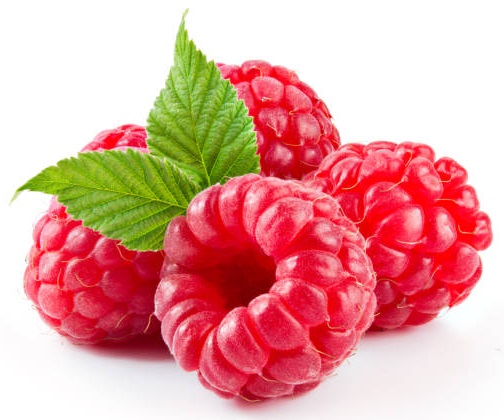
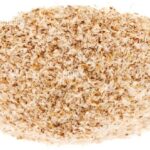

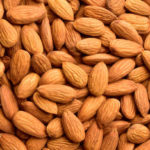

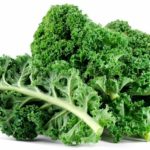

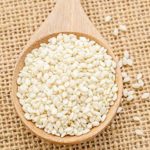





[…] comments. If you like this article please share and rate it. I will come back with new posts for Health, Recipes, and Herbal Beauty tips […]